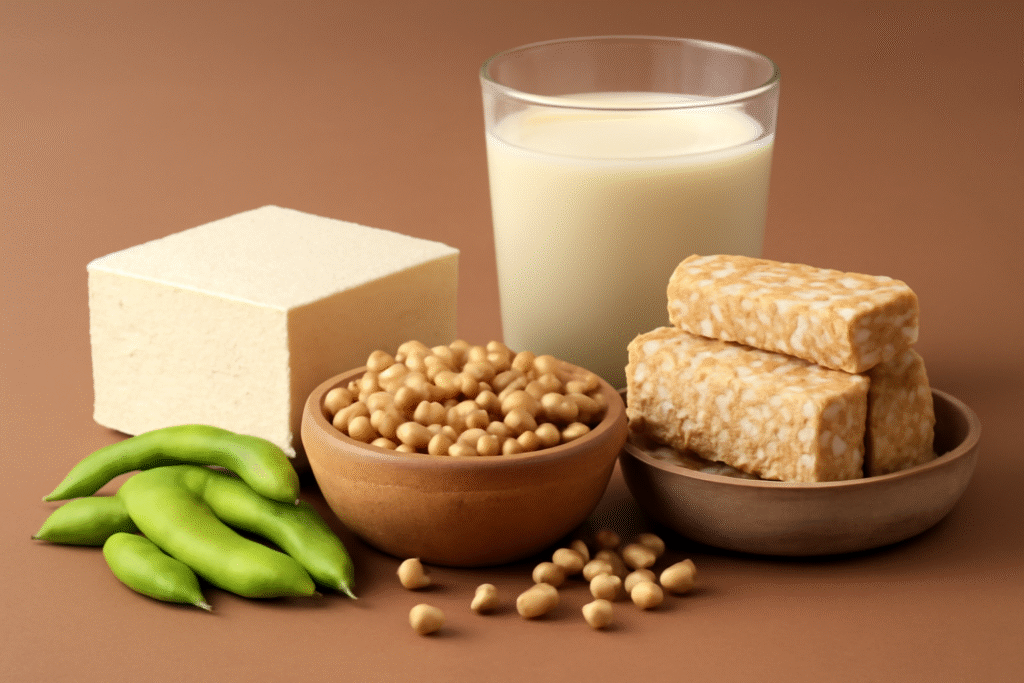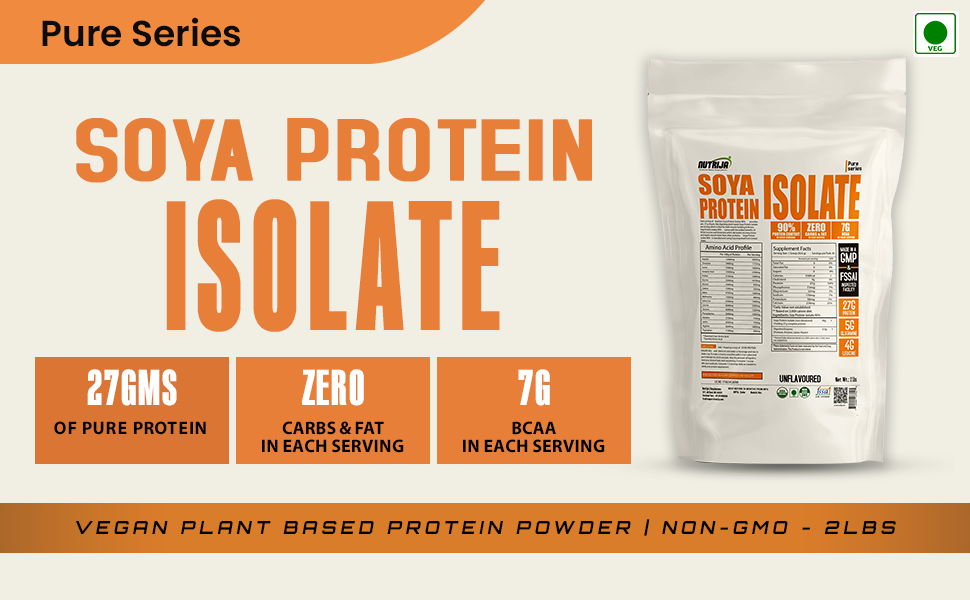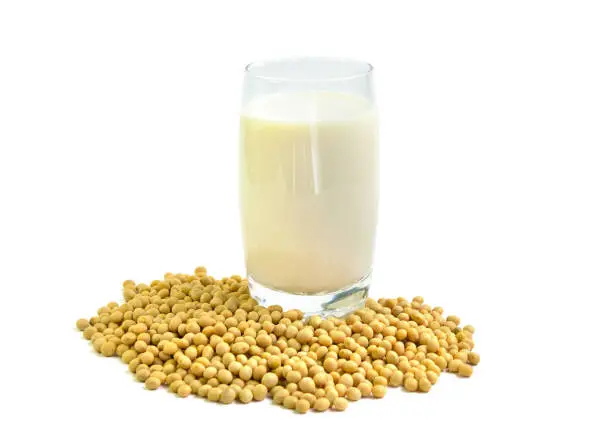
Insoya, a term that has recently caught the attention of health enthusiasts and food lovers alike, offers a wealth of benefits that are hard to overlook. Derived from soybeans, this plant-based ingredient has quickly become a favorite among individuals seeking healthier, more sustainable alternatives to traditional animal-based products. But what makes insoya so special? Let’s dive deep into its origins, nutritional profile, health benefits, and how you can incorporate it into your daily meals.
What Is Insoya and Why Is It Gaining Popularity?
Insoya is a plant-based food product made from soybeans. The versatility of insoya allows it to be used in a wide range of food items, including tofu, tempeh, soy milk, and even edamame. While these forms of soy products have been popular for years, the increasing awareness about plant-based diets and sustainability has propelled the demand for insoya into the spotlight. Its rich protein content, low-fat profile, and array of essential nutrients make it a sought-after ingredient in modern kitchens.

For many people, incorporating plant-based foods like insoya into their diets represents a commitment to a healthier, more eco-friendly lifestyle. Whether you are vegan, lactose intolerant, or simply looking to reduce your consumption of animal-based products, insoya is an excellent alternative to consider.
Nutritional Benefits of Insoya
Insoya stands out for its impressive nutritional profile. As a plant-based protein source, it offers a significant amount of essential nutrients, all without the drawbacks of animal-based products. Let’s take a closer look at some of the key nutrients in insoya:
- High-Quality Protein: Insoya is a complete protein, which means it contains all nine essential amino acids that the body cannot produce on its own. This makes it an excellent source of protein, especially for vegetarians and vegans.
- Fiber: The fiber content in insoya helps with digestion and supports healthy gut function. It also contributes to a feeling of fullness, making it a great food choice for weight management.
- Vitamins and Minerals: Insoya is packed with vitamins and minerals such as calcium, iron, and magnesium. These nutrients are essential for bone health, blood circulation, and overall well-being.
- Low in Saturated Fat: Unlike many animal-based products, insoya contains little to no saturated fat, making it a heart-healthy food choice.
These nutrients make insoya not just a filling food but a nourishing one as well, supporting everything from bone health to muscle function.

How Insoya Benefits Your Health
Incorporating insoya into your diet can have a range of positive effects on your health. Here are a few of the major benefits that make this ingredient stand out:
1. Promotes Heart Health
Heart disease remains one of the leading causes of death worldwide, but consuming plant-based foods like insoya can help reduce the risk. Insoya is free from cholesterol and low in saturated fat, which are known contributors to heart disease. Additionally, the healthy fats found in soy products, such as omega-3 fatty acids, help reduce inflammation in the body and support cardiovascular health.
Studies have shown that replacing animal proteins with plant-based options like insoya can lower blood pressure and reduce the risk of heart attacks and strokes. Regularly including this ingredient in your meals can be a powerful step toward a heart-healthy lifestyle.
2. Supports Bone Strength
If you’re looking for ways to boost your bone health, insoya can be a game-changer. Many forms of insoya, such as tofu and tempeh, are rich in calcium, a vital mineral that helps maintain strong bones and prevent osteoporosis. Moreover, the magnesium in insoya works alongside calcium to help improve bone density.
For those who are lactose intolerant or choose not to consume dairy products, insoya offers a calcium-rich alternative that promotes bone health without the need for animal-derived foods.
3. Helps Manage Weight
With the rise in plant-based diets, managing weight through whole, nutritious foods has never been easier. Insoya, with its high protein and fiber content, helps curb hunger and promote a feeling of fullness. This makes it easier to control your calorie intake and stick to a healthy eating plan.

Additionally, the low-calorie nature of most soy-based products makes them an excellent choice for those looking to lose or maintain weight. By including tofu, tempeh, or soy milk in your meals, you can enjoy a hearty dish without the guilt of excess calories.
4. Aids in Digestive Health
Insoya is an excellent source of fiber, which is essential for digestive health. Fiber aids in regulating bowel movements and can prevent constipation. Moreover, a fiber-rich diet is linked to a lower risk of digestive disorders such as diverticulitis and colorectal cancer.
By adding more fiber-rich foods like edamame, tempeh, and tofu to your diet, you can support your gut health while also enjoying a variety of delicious meals.
Popular Forms of Insoya and How to Use Them
Insoya comes in many different forms, each offering unique textures and flavors. Here are some of the most popular types of insoya products and ideas for how you can use them in your cooking:
Tofu
Tofu is made by coagulating soy milk and pressing it into blocks. It has a neutral flavor, making it highly versatile. Tofu can be used in savory dishes like stir-fries, soups, and salads or sweet dishes such as smoothies, puddings, and desserts. Firm tofu is ideal for grilling or pan-frying, while soft tofu can be blended into sauces or used to replace dairy in creamy recipes.
Tempeh
Tempeh is made by fermenting cooked soybeans, which results in a dense, nutty product. Unlike tofu, which has a mild flavor, tempeh has a stronger, earthier taste. It’s great for making plant-based burgers, sandwiches, or salads. Tempeh is also an excellent source of probiotics, which are beneficial for gut health.
Soy Milk
Soy milk is a liquid product made from blending soybeans with water. It’s a great alternative to dairy milk and can be used in coffee, smoothies, cereal, or baking. Soy milk comes in various varieties, including unsweetened, vanilla, and chocolate, making it easy to choose the right option for your needs.

Edamame
Edamame are young, green soybeans that are harvested before they fully mature. They are typically steamed or boiled and served as a snack or appetizer. Edamame is packed with protein and fiber, making it an ideal snack for anyone looking to boost their intake of plant-based nutrients.
How to Include Insoya in Your Meals
There are countless ways to include insoya in your diet, from simple snacks to elaborate meals. Here are some easy ways to enjoy this nutritious ingredient:
- Smoothies: Blend tofu or soy milk into your favorite smoothie recipes for a creamy texture and a protein boost.
- Stir-Fries: Add cubed tofu or tempeh to a vegetable stir-fry for a filling, protein-rich meal.
- Salads: Toss some edamame into your salads for an added crunch and nutritional boost.
- Baking: Use soy milk in place of dairy milk for vegan baking recipes.
- Snacks: Keep edamame or roasted soy nuts on hand for a quick, healthy snack.
More Related Article: How Skinpres T Can Improve Your Skinpres T Naturally
Insoya vs. Other Plant-Based Alternatives
| Feature | Insoya | Almond Milk | Oat Milk |
| Protein Content | High | Low | Moderate |
| Calcium | High | Moderate | High |
| Fiber | High | Low | Moderate |
| Flavor | Neutral | Nutty | Sweet |
| Best For | Protein Boost | Smoothies | Coffee |
While almond and oat milk are excellent choices for dairy-free diets, they don’t provide as much protein as soy products like tofu and tempeh. Insoya is ideal for anyone looking for a high-protein plant-based food.
Conclusion
Insoya is a powerhouse ingredient that offers a wealth of benefits for your health and wellness. Whether you’re trying to boost your protein intake, support heart health, or simply explore plant-based options, incorporating insoya into your diet is a smart and delicious choice. With its versatility, it can be used in a wide range of recipes, from savory to sweet. As the demand for plant-based foods continues to grow, so does the importance of including ingredients like insoya in our daily meals.
FAQs
1. What is Insoya?
Insoya is a plant-based product made from soybeans, available in forms like tofu, tempeh, soy milk, and edamame. It’s known for its high protein content and nutritional benefits.
2. Is Insoya good for weight loss?
Yes, insoya is low in calories but high in protein and fiber, which helps control hunger and promote fullness, making it a great addition to a weight loss diet.
3. Can Insoya help with heart health?
Insoya is low in saturated fats and free from cholesterol, making it an excellent food choice for supporting heart health and reducing the risk of heart disease.
4. How can I use Insoya in my meals?
Insoya can be used in various forms like tofu in stir-fries, soy milk in smoothies, and tempeh in sandwiches or salads. It’s highly versatile and can be incorporated into many dishes.
5. Is Insoya suitable for people with lactose intolerance?
Yes, insoya is an excellent dairy alternative for those who are lactose intolerant. Soy milk is a common substitute for dairy milk in many recipes.








1 thought on “Exploring Insoya: Benefits & Versatility of This Plant-Based Powerhouse (2025)”